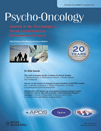Cancer as the cause of changes in work situation (a NOCWO study)
Abstract
Objective: To investigate the frequency of changes in work situation due to cancer and to analyze the association of physically demanding work, social support from supervisors, colleagues or occupational health services, and disease-related factors, with changing employers due to cancer.
Methods: Working-aged patients with breast, testicular or prostate cancer, or lymphoma with a good prognosis between 1997 and 2002 were identified from a hospital or cancer registry in four Nordic countries. The registers provided data on the disease-related factors. Information on changes in work situation, received support, and other work-related factors was collected using a questionnaire (response rate 72%). The frequency of changes in work situation was evaluated among a total of 2030 survivors. Further analyses were carried out among 688 survivors using a multivariable logistic regression model, to investigate factors affecting the risk of changing employers due to cancer.
Results: Altogether, 5–10% of cancer survivors had changed employers, occupations or work tasks, 5% had been unemployed, and 9% had retired due to cancer. The physical demands of previous work were the most important reason behind changing employers after cancer. Among women, weak support from supervisors and occupational health personnel increased the risk of changing employers because of cancer.
Conclusions: A minority of cancer survivors changed employers, occupations, or work tasks because of cancer. Supervisors' support in the form of lightening physically demanding jobs and taking illness into consideration when planning work tasks, and health-care workers' advice on coping at work may help survivors to maintain their jobs. Copyright © 2010 John Wiley & Sons, Ltd.




